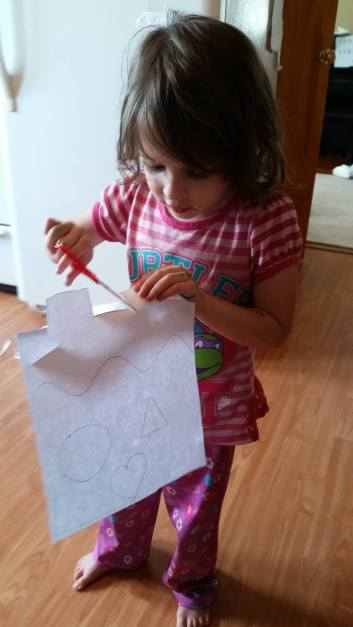
We’ve all read about how experiences are better gifts for your kids than toys, but I really liked the way this study put it: holidays with your family are “happiness anchors” in your memory that have lasting effects on your psyche. Now that I’m a parent, I realize how much work my own parents put into arranging special trips for us–not necessarily the giant, Disney-type extravaganzas that most people talk about, but everything from beach vacations to day trips and little rituals at home. Here are some of the moments anchored in my mind.
- I remember being woken up in the middle of the night to go see comets, eclipses, and meteor showers. I remember driving out to the countryside, being a little scared in the empty darkness but feeling safe with my big brothers, guarding my eyes against the passing headlights to preserve my night vision.
- I remember road trips that my father planned meticulously, always making sure we’d be near the best delis at lunch time. I treasured a Bazooka Joe comic in Hebrew from a Jewish deli in Connecticut for years.
- I remember trips to mines and quarries: a boat ride on an underground river, a cold cave pool that never saw the light of day, and giant loose chunks of mica free for the gathering.
- I remember hours and hours of reading out loud before bedtime: Narnia and Robin Hood with my mother, Tolkien and Homer with my father. Just one more chapter, please!
- I remember one glorious time when someone offered us a free dumpster full of books that survived a fire, and my father couldn’t resist. We parked it in our driveway and climbed in and dug around for treasures all week.
- I remember science museums, art museums, planetariums, zoos, aquariums, beaches, mountains, operas, concerts–but also so many small things that my parents probably thought were no big deal: helping my father organize books for a book sale. Science experiments with my mother. I even have deeply happy memories of my bi-weekly turn to come along on the grocery shopping and get to pick the flavor of soda for weekend dinners.
I’m writing these down mostly to remind myself that my kids don’t need big fireworks from me. Today my six-year-old got to come–just him!–to Walmart to buy diapers, and we stopped for a little snack and a chat afterwards (“Subway is the best restaurant ever, Mama!”). My four-year-old is thrilled because she got to do “cutting practice” today (something my mother used to do for me),

and my two-year-old is just happy that I watched her do a trick. (“Watch this, Mama! SAME TRICK!”) They will remember the vacations and the expensive trips, but they’ll remember the little things too.



